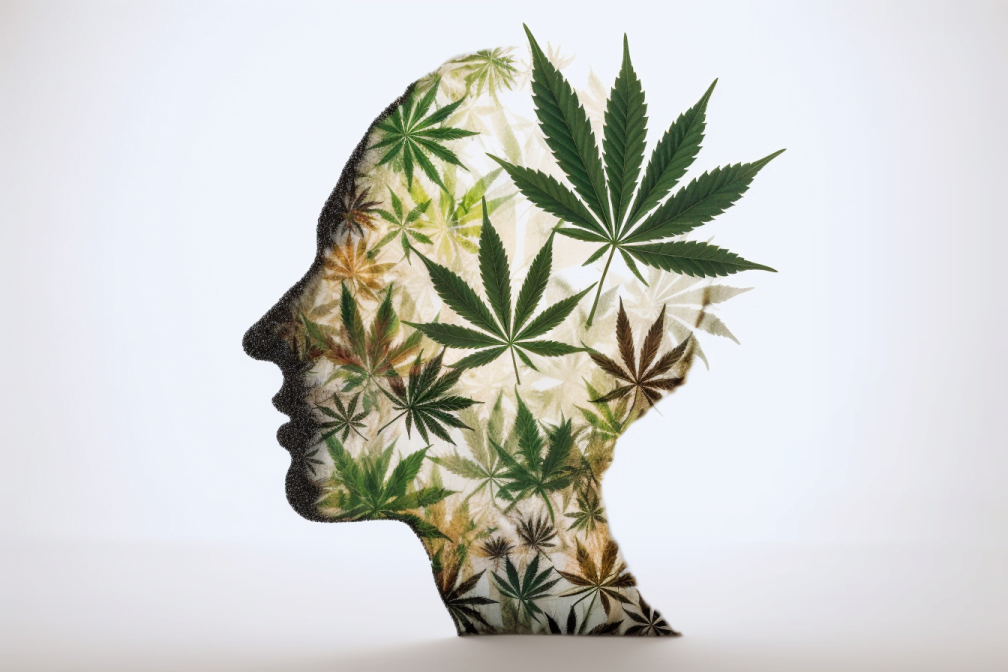English
Cannabis is a psychoactive substance that has been used for centuries for medicinal and recreational purposes. The active ingredient in cannabis, delta-9-tetrahydrocannabinol (THC), has been found to have both positive and negative effects on mental health.
Positive Impact of Cannabis on Mental Health
One of the most significant positive effects of cannabis on mental health is its ability to alleviate symptoms of anxiety and depression. Studies have found that cannabis can help reduce feelings of anxiety and depression by increasing levels of serotonin, a neurotransmitter that regulates mood. Cannabis has also been shown to have a calming effect, which can help reduce symptoms of anxiety.
A 2019 study published in the Journal of Clinical Psychology found that cannabis can be an effective treatment for symptoms of anxiety and depression. The study involved 1,819 people who used cannabis for medicinal purposes, and it found that cannabis use was associated with significant reductions in symptoms of anxiety and depression.
The study also found that the benefits of cannabis on mental health were most significant for people with high levels of anxiety and depression. The researchers concluded that cannabis could be a useful alternative treatment for people who are not responding to traditional treatments or who are experiencing side effects from medications.
Another potential benefit of cannabis on mental health is its ability to reduce chronic pain. Chronic pain can lead to depression and anxiety, and cannabis has been shown to be an effective treatment for pain. Cannabis can help reduce inflammation and pain by interacting with the body’s endocannabinoid system.
Cannabis has also been found to have neuroprotective properties. Studies have found that cannabis can help protect the brain from damage caused by trauma, such as concussions. Cannabis can also help reduce symptoms of post-traumatic stress disorder (PTSD) by reducing anxiety and improving sleep.
Negative Impact of Cannabis on Mental Health
While cannabis can have potential benefits for mental health, it can also have negative effects. One of the most significant risks of cannabis use is the potential for addiction. Cannabis use disorder is a recognized mental health condition that affects approximately 9% of people who use cannabis. Symptoms of cannabis use disorder include increased tolerance, withdrawal symptoms, and difficulty quitting.
Cannabis use can also have negative effects on memory and cognitive function. Studies have found that regular cannabis use can impair memory, attention, and decision-making abilities. This can lead to difficulties in school or work and can also increase the risk of accidents while driving or operating machinery.
Another potential risk of cannabis use is the development of psychosis. Studies have found that regular cannabis use can increase the risk of developing psychosis, a severe mental health condition characterized by delusions and hallucinations. The risk of psychosis is highest in people who use high-potency cannabis or who use cannabis regularly during adolescence.
Conclusion
In conclusion, cannabis can have both positive and negative effects on mental health. Cannabis has been found to alleviate symptoms of anxiety and depression, reduce chronic pain, and have neuroprotective properties. However, cannabis use can also lead to addiction, impair memory and cognitive function, and increase the risk of developing psychosis. It is essential to understand the potential benefits and risks of cannabis use and to use it responsibly.
If you are considering using cannabis for mental health reasons, it is recommended to speak with a healthcare professional to discuss the potential benefits and risks. A healthcare professional can help you determine if cannabis is right for you and can also provide support and guidance throughout the process.
Related articles :
Published by Sakul
14/05/2023choose and buy cannabis seeds from our offer
our pleasure




























